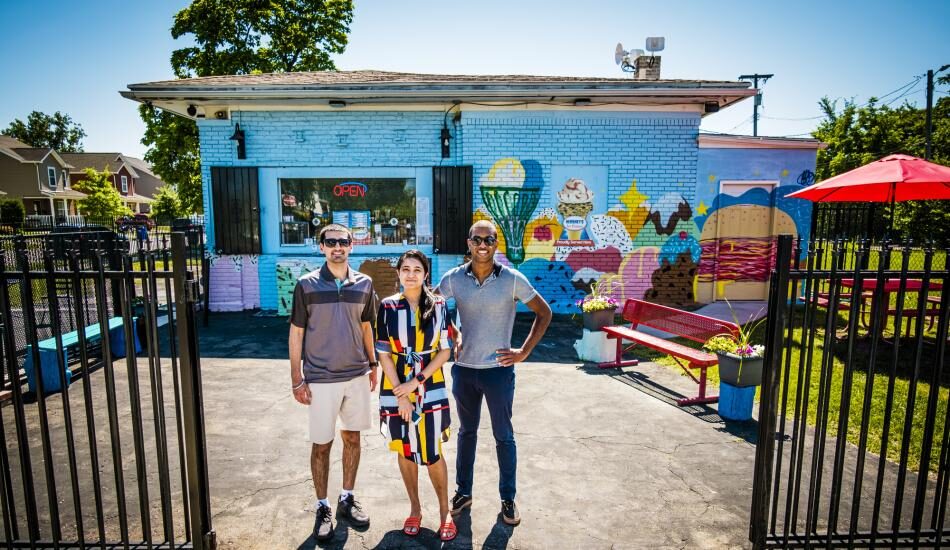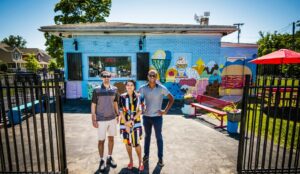Source: School of Information

Masters students Preetam Shokar, Neha Kumari and David Parker stand in front of MJs North End Ice Cream Parlor, a Detroit business that receives its internet connectivity from the Detroit Community Technology Project.

Masters students Preetam Shokar, Neha Kumari and David Parker stand in front of MJs North End Ice Cream Parlor, a Detroit business that receives its internet connectivity from the Detroit Community Technology Project.
It’s all about where the rubber meets the road.
At least, that’s how David Parker, a University of Michigan Master of Science in Information student, describes his summer. David, alongside dozens of UMSI students, participated in the Global Information Engagement Program and the Citizen Interaction Design Summer Fellows program, two social-impact programs taught by the Engaged Learning Office.
Offered through the Engaged Learning Office, teams of interdisciplinary students are paired with social sector organizations, including nonprofits, governments and art organizations.
The result? A summer of students working together to solve real world problems while fostering intimate relationships with community members, mentors and peers.
“I’ve always had a desire to help people with technology,” Parker said. “I wanted experience working with low resources and helping nonprofits tackle big issues. This program was a great opportunity to do that and test my skills and really see what happens when the rubber meets the road.”
David worked with the Detroit Community Technology Project. With 25% of Detroit residents lacking internet access, the project seeks to close the technology gap by helping residents install neighborhood governed internet structures.
The team’s challenge included creating an online and interactive version of the 20-week training the technology project offers to residents and organizations interested in setting up their own internet structures.
The social justice model of these Engaged Learning Office programs is integral to the structure of the program and what most students say attracts them to this type of applied, immersive internship experience. Students are encouraged to think about problems in a culturally responsive manner while working on gaining a stronger understanding of personal biases, power and privilege.
“They really are learning how to be curious and inquisitive,” says Kelly Kowatch, director of the Engaged Learning Office. “They’re getting the experience of applying their classroom learnings in really complex, real world situations.”
Still, the freedom to play didn’t come without challenges for students. Nonprofit organizations and local governments are sometimes falling behind on technology. Data collection can also be tricky for smaller organizations with limited staffing and resources.
This poses unique challenges and opportunities for students to help nonprofits gain access to user research and come up with innovative solutions despite small budgets, aging technology and little to no data.
“We’re a small team,” says Jessica Williams, interim executive director of The Heidelberg Project. “Without the students, it probably would have been years before we began wrestling with a data collection process and creating a system of data analysis that works for our stakeholders.”
Read the full story here.

